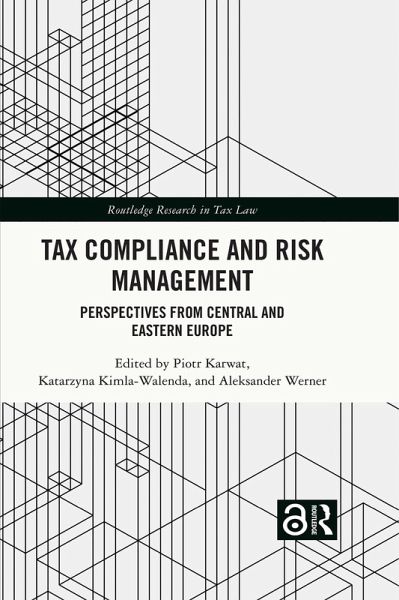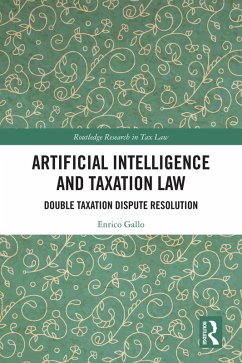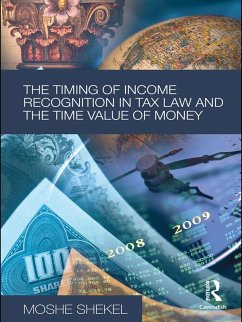
Tax Compliance and Risk Management (eBook, PDF)
Perspectives from Central and Eastern Europe
Redaktion: Karwat, Piotr; Werner, Aleksander; Kimla-Walenda, Katarzyna
Versandkostenfrei!
Sofort per Download lieferbar
39,95 €
inkl. MwSt.
Weitere Ausgaben:

PAYBACK Punkte
20 °P sammeln!
The concept of tax compliance is as old as the tax itself, but staying compliant with tax regulations has become increasingly demanding. A changing tax regulatory environment, resulting from regulatory actions of the OECD, the European Union and national governments, poses many problems for tax compliance awareness. This book explores various approaches to improving tax compliance. Starting with the procedures and processes that are at the centre of the debate, it includes the level of tax position security obtained as a result of cooperation between tax administration and an organisation, end...
The concept of tax compliance is as old as the tax itself, but staying compliant with tax regulations has become increasingly demanding. A changing tax regulatory environment, resulting from regulatory actions of the OECD, the European Union and national governments, poses many problems for tax compliance awareness. This book explores various approaches to improving tax compliance. Starting with the procedures and processes that are at the centre of the debate, it includes the level of tax position security obtained as a result of cooperation between tax administration and an organisation, ending with tax compliance requirements imposed by one-sided action of tax administration. Offering an experience and evidence-based analysis of how tax compliance influences an organisation's tax and financial position, the issues are examined from both a theoretical and a practical perspective, using empirical research and case studies with an international dimension for illustration. Emphasising a holistic approach to tax compliance and its role in tax risk management within an organisation, this study offers a framework for making the challenging task of tax compliance and risk management more effective and more efficient. Exploring tax compliance focusing on the tax world after the BEPS project and anti-tax evasion and anti-tax avoidance regulatory actions undertaken by the European Union and OECD, the book has a practical focus on tax system design within the organisation and will be of interest to students, researchers and practitioners working in the areas of tax law and tax compliance.
Chapter 13 and Summary of this book are freely available as a downloadable Open Access PDF at http://www.taylorfrancis.com under a Creative Commons [Attribution-Non Commercial-No Derivatives (CC-BY-NC-ND)] 4.0 license.
Chapter 13 and Summary of this book are freely available as a downloadable Open Access PDF at http://www.taylorfrancis.com under a Creative Commons [Attribution-Non Commercial-No Derivatives (CC-BY-NC-ND)] 4.0 license.
Dieser Download kann aus rechtlichen Gründen nur mit Rechnungsadresse in A, B, BG, CY, CZ, D, DK, EW, E, FIN, F, GR, HR, H, IRL, I, LT, L, LR, M, NL, PL, P, R, S, SLO, SK ausgeliefert werden.













